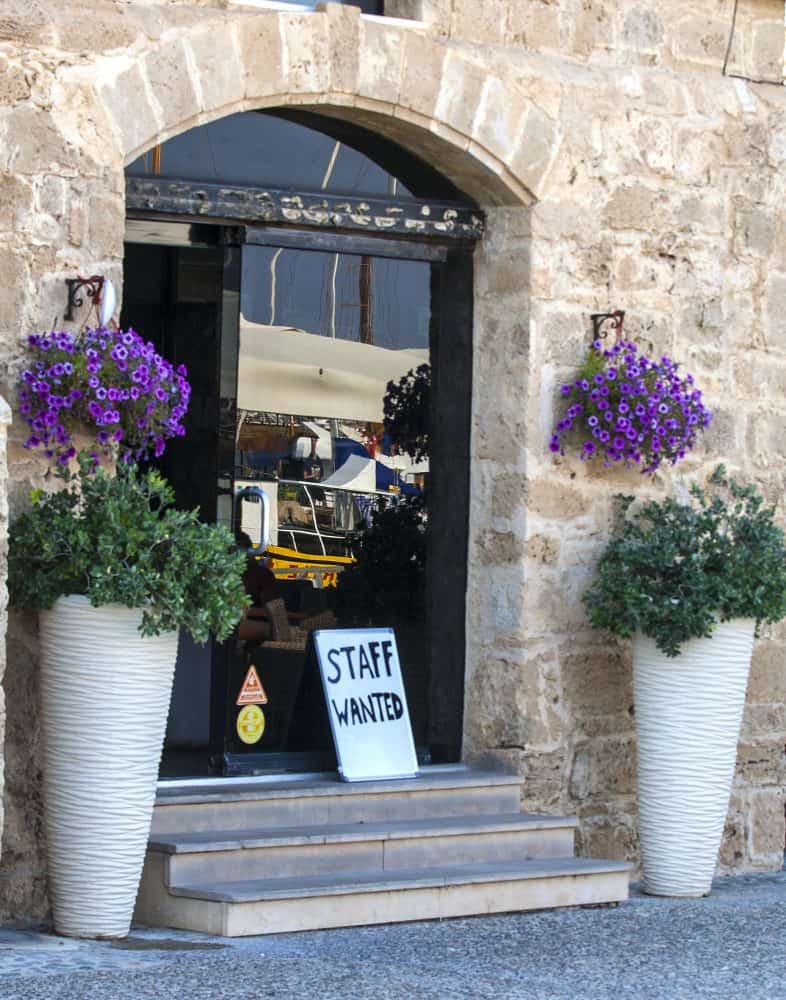Once a rite of passage into adulthood, summer jobs for teens are disappearing. Twenty years ago, about half of U.S. teens spent at least part of their summers scooping ice cream, running cash registers, or working at local seasonal shops. But according to Pew Research Center, the number of working teens has declined since 2000. Approximately 35% of American teens held a job in 2018, and the Bureau of Labor Statistics (BLS) reports that teens ages 16 to 19 accounted for about 4.5 percent of the labor force.
So if you are a teen, or have a teen, looking for a summer job, here’s some good advice from the experts on how to land a paycheck this summer.
Prepare a résumé. Even if you have little job experience (mowing yards, babysitting, etc.), list it to show you are industrious. Ask your employers to offer letters of reference that you can attach to job applications. Keep the résumé short, on white paper and in an easy-to-read format. This is no time to get creative (unless you’re applying for work at an art gallery or ad agency). Know what you have written – you do not want to refer to your papers when answering a question. It gives the impression that it might be misleading.
Dress as if you are going to an interview. Maybe not a suit and tie (or maybe so, depending on the job) but do wear clean, neat clothes like you might wear for school photos. Then stop by some local businesses and ask to fill out an application in person. Online applications can be overwhelming for some employers. If you show up in person, it means you are serious. Don’t be discouraged if the manager tells you to apply online. If this happens, shake hands, make eye contact, and thank the manager. You will leave an impression, and when your online application arrives the manager may remember your courteous manner.
Be professional, even if you’re applying for a job as a bus boy. Act as if you want to be there, seeking employment, instead of slinking in as if this was your parents’ choice and not yours. Don’t reek of tobacco smoke, don’t chew gum and don’t wear a lot of perfume or aftershave. Comb and style your hair neatly. Remove any unusual or attention-getting piercings, but ask about guidelines for personal style on the job. Be polite, don’t interrupt and don’t ever swear. Go alone. You probably act less mature around your friends and you’ll appear too child-like if you take your mom. See more tips here.
Look for “help wanted’’ signs. Again, stop in and talk to the manager. Show him or her that you’re a good people person. Shake hands and look people in the eye when you talk to them. Smile.
Look for jobs at seasonal businesses. Tourist attractions or related businesses like hotels and restaurants sometimes need extra help during busy times. If you get the job, make the commitment to finish it — don’t ditch the company halfway through the summer because you’re tired of working. That won’t look good on your next résumé. If you would like to have part of your summer for relaxation, ask about short term employment, or about swing shifts.
Check out local job fairs. Here’s another chance to impress an employer with your willingness to put yourself out there. Look at the list of prospective employers who will be at the fair and target those you think might actually hire you. Before you approach a company, do your homework. Know what the company does and what kinds of jobs it might have available. When you meet a potential employer at a job fair, strike up a conversation and mention a few company facts or products. Visit the business in advance to get a feel for what they do.
Prepare for interview questions. You might walk into a business and fill out an application, and a manager will want to interview you on the spot. So don’t get caught off guard. Type “interview questions” into Google and find some typical questions that are asked during interviews. For example, a manager may ask, “Why should I hire you?” Think about how you would answer these questions before you start applying for jobs. If you are applying for a customer service job and you feel you have strong communication skills, make sure the interviewer knows that.
Ask for a business card. If you get to talk to a human resources person, a recruiter or store manager, ask for their card. Make notes on the back (“says to call him by Memorial Day”) to remind you of your encounter and to follow up. And always follow up. Maybe even have cards of your own printed on the cheap so your contacts have another reminder of who you are.
Arrive early to an interview. Plan to be there 10 minutes before your appointment. The interviewer will make note of your promptness. You want this job, so you have made it a priority. And never arrive late – plan for traffic or possible delays.
Thank them for their time. Acknowledge that your new contact is a busy person, and that you appreciate him or her taking a few minutes to talk with you. You’ll leave a good impression. A follow up thank you card or email is a huge plus in your favor.
Good luck, and happy job hunting.


The job fair link isn’t going to a related site – it’s about interviews.